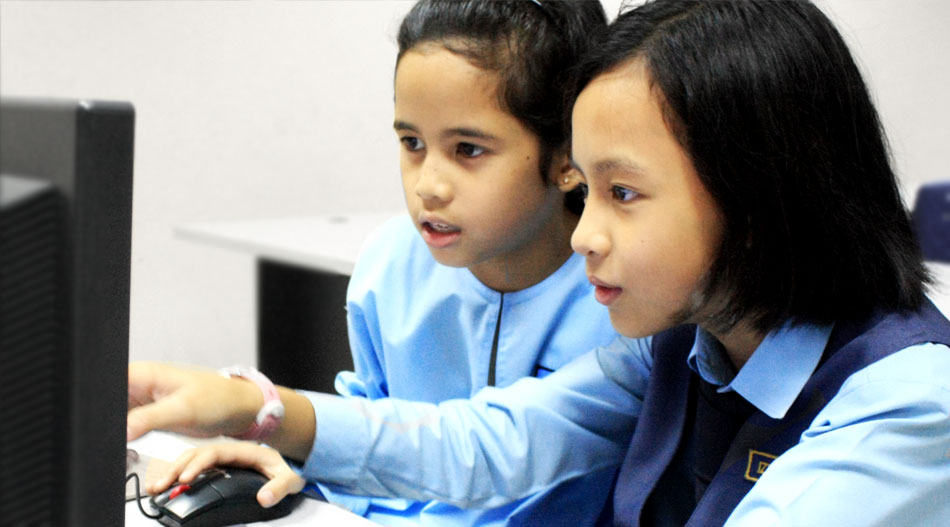By Zairil Khir Johari, MP for Bukit Bendera
 For over a year, I have raised a myriad of concerns about the 1BestariNet project that encompasses the installation of 4G high-speed broadband across all 10,000 schools throughout the country, as well as a Virtual Learning Environment (VLE) e-learning system to be used by 5.5 million students and 500,000 teachers nationwide.
For over a year, I have raised a myriad of concerns about the 1BestariNet project that encompasses the installation of 4G high-speed broadband across all 10,000 schools throughout the country, as well as a Virtual Learning Environment (VLE) e-learning system to be used by 5.5 million students and 500,000 teachers nationwide.
This was always going to be an overly ambitious project, to say the least. While I do not dispute the use of information and communications technology (ICT) in schools in order to cultivate creativity and access to the infinite data mine known as the Internet, I have always questioned the wisdom of taking a one-size-fits-all approach in implementation across all schools at one go.
With a total project cost estimated at RM4.1 billion over 15 years, the risk of 1BestariNet turning into an expensive white elephant was real. And with the latest Auditor-General’s Report, it would appear that all my concerns have been proven right.
Contractual irregularities
According to the Auditor-Generals’ Report, the implementation of 1BestariNet by its contractor, YTL Communications (YTLC) Sdn Bhd, has been beset by irregularities.
Firstly, YTLC was tasked to roll-out 4G broadband Internet across all 10,000 schools by 30 March 2013. However, by the stipulated time, only 6,092 locations or 59.3 per cent of the total had been connected. More than a year later, at the end of YTLC’s initial 2.5-year contract on 12 June 2014, only 88.9 per cent have been completed, leaving about 1,082 schools still waiting. As a result of this delay, YTLC has been fined RM2.4 million by the Ministry of Education (MOE).
Other irregularities pointed out by the Auditor-General’s Report include a lack of value management, failure to obtain technical approvals from the Malaysian Administrative Modernisation and Management Planning Unit (MAMPU) and MOE, as well as failure to conduct a School Needs Assessments before installation of infrastructure. Because an assessment of existing infrastructure was not performed, 58 per cent of 501 schools reported that the 1BestariNet system did not cover the entire school compound, even though it was contractually obligated to do so.
In addition, 89.1 per cent of 46 schools tested and 70.3 per cent from 491 survey respondents revealed that broadband speeds averaged between 0.2Mbps to 3.62Mbps, which is much lower than the contractually promised 4Mbps to 20Mbps. As such, current speeds were found to be unsatisfactory and too low to handle more than 30 to 40 VLE users at a time.
Shortcomings of 1BestariNet
More shockingly, 1BestariNet suffers from very low usage. Despite 8,886 schools already equipped with the VLE system, the Auditor-General’s Report showed that login statistics were between 0.01 to 4.96 per cent.
This shockingly low usage despite so much invested is mainly due to the inadequacy of existing infrastructure to fully support the system, sluggish broadband connection that severely limits access to the system, a shortage of supplementary tools such as laptops and projectors, as well as a lack of monitoring and clear policy guidelines on the use of the VLE.
Most importantly, there is also very little effort in engaging the active involvement of all stakeholders, such as principals, teachers, parents and students.
VLE should be suspended pending review in Champion Schools
It is clear that 1BestariNet is a colossal failure. In order to prevent further wastage, I would like to suggest that the blanket implementation of the VLE across all 10,000 schools nationwide be suspended with immediate effect, except in Champion Schools, which are selected schools that have been chosen to set a benchmark in the usage of VLE.
According to the Auditor-General’s Report, 351 Champion Schools have received special training in the usage of VLE as at December 2013. As many as 3,861 teachers and 1,404 students in these schools have been trained as primary users and agents who will be able to mentor, guide and encourage other teachers and students in other schools.
These Champion Schools should serve as a pilot project in order to ascertain the weaknesses and strengths of 1BestariNet before it is replicated nationwide in all 10,000 schools. Piloting this project in a controlled environment would also allow fine-tuning of the VLE system and its assimilation to local conditions before it is implemented across the board.
If 1BestariNet is allowed to continue at its current rate and form, there is no doubt that RM4.1 billion of taxpayers’ money will be wasted to fund yet another expensive white elephant.



